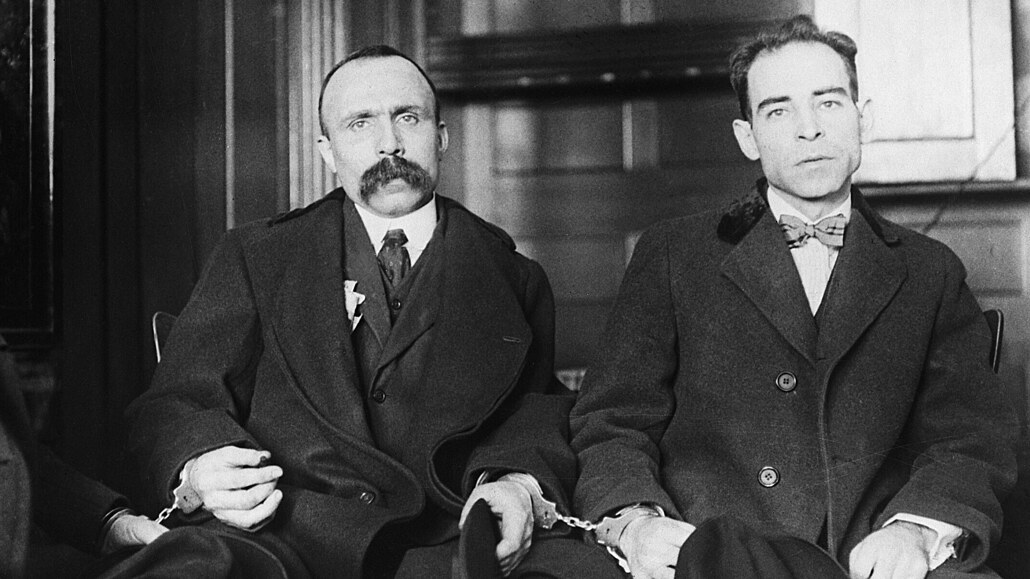In Boston -7th Annual Sacco and Vanzetti Commemoration Day - Sunday, August 26, 2012
Gather at the Boston Common Visitor Center (Tremont/West) at 2PM to star marching toward the North at 3PM. Then rally at 4PM the Greenway Park, Hanover St. and Cross Street in the NOrth End of Boston.
This event is dedicated to all political prisoners and victims of state repression.
JUSTICE CRUCIFIED NO MORE!
Sponsored by the Sacco and Vanzetti Commemoration Society and the I.W.W.
Endorsed by the Lantern Collective, Bread and Roses Heritage Committee, Common Struggle
For more info: info[at]saccoandvanzetti.org or call 617-290-5614
Interview with Theodore Grippo, author of the book "With Malice
Aforethought, The Execution of Nicola Sacco and Bartolomeo Vanzetti"
07/24/2012 [DOCUMENTS] -
“When I was ten years old, I asked my father about Sacco and Vanzetti. I had heard their names, probably on the radio, in connection with the tenth anniversary of their executions. I still remember the look on my father’s face as he explained that Nicola Sacco and Bartolomeo Vanzetti had been sentenced to death for robbery and murder, but many believed they were innocent. My father spoke emotionally of the beautiful letters Sacco wrote to his children just before he was executed, and of Vanzetti’s kind nature and brilliant mind. I believe that my father, an Italian immigrant shoemaker, identified with Sacco, an Italian immigrant shoe trimmer. My father’s expression and tone denoted sadness marked with a fear I could not then understand. I later learned he felt threatened by the ill will many Americans displayed toward Italians as a result of that case.”
Grippo will be speaking Tuesday, August 28th at 6:00 the Boston Public Library , Central Library, Orientation Room, 700 Boylston Street and again on Wednesday, August 29th at 7:00 at the Dante Alighieri Italian Cultural Center, 41 Hampshire Street, Cambridge.
Gather at the Boston Common Visitor Center (Tremont/West) at 2PM to star marching toward the North at 3PM. Then rally at 4PM the Greenway Park, Hanover St. and Cross Street in the NOrth End of Boston.
This event is dedicated to all political prisoners and victims of state repression.
JUSTICE CRUCIFIED NO MORE!
Sponsored by the Sacco and Vanzetti Commemoration Society and the I.W.W.
Endorsed by the Lantern Collective, Bread and Roses Heritage Committee, Common Struggle
For more info: info[at]saccoandvanzetti.org or call 617-290-5614
Interview with Theodore Grippo, author of the book "With Malice
Aforethought, The Execution of Nicola Sacco and Bartolomeo Vanzetti"
07/24/2012 [DOCUMENTS] -
“When I was ten years old, I asked my father about Sacco and Vanzetti. I had heard their names, probably on the radio, in connection with the tenth anniversary of their executions. I still remember the look on my father’s face as he explained that Nicola Sacco and Bartolomeo Vanzetti had been sentenced to death for robbery and murder, but many believed they were innocent. My father spoke emotionally of the beautiful letters Sacco wrote to his children just before he was executed, and of Vanzetti’s kind nature and brilliant mind. I believe that my father, an Italian immigrant shoemaker, identified with Sacco, an Italian immigrant shoe trimmer. My father’s expression and tone denoted sadness marked with a fear I could not then understand. I later learned he felt threatened by the ill will many Americans displayed toward Italians as a result of that case.”
Grippo will be speaking Tuesday, August 28th at 6:00 the Boston Public Library , Central Library, Orientation Room, 700 Boylston Street and again on Wednesday, August 29th at 7:00 at the Dante Alighieri Italian Cultural Center, 41 Hampshire Street, Cambridge.


